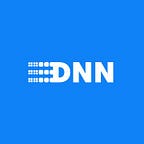Creating a decentralized, incorruptible platform for media, including news, will change the way we consume content, potentially making fake news a thing of the past.
Author: Anita Sthankiya
If fake news was presented to you, or came down your news feed on social media, would you recognize it? The article, website, and content may appear to be legitimate, but it can be virtually impossible to authenticate the information being presented. Until now, that is.
The future of media is evolving at an exponential speed, thanks to the blockchain and sites such as DNN.media. In fact, fake news and unbalanced reporting have met their match through this platform, which drives accountability through a peer-reviewed process. DNN is using the power of the Ethereum blockchain to allow for a fully decentralized network. Meaning, the platform can never be hacked, taken down, or censored.
Blockchain technology was originally devised for the cryptocurrency Bitcoin, but the tech community is finding other useful alternatives for the technology, such as in the media industry.
Media industries have been heavily impacted, as content has been undermined and piracy of intellectual property has been widespread. The industry has suffered significantly from digitization, since content can be copied and distributed with a loss of quality. Paywalls and digital rights management systems have not substantially reduced copyright infringements.
But, as we look to the future, blockchain technology is poised to resolve some of the current challenges, according to Blockchain Institute report completed by Monitor Deloitte: A new Game Changer for the Media Industry?
The report indicates that blockchain-based technologies could resolve issues surrounding paid content by introducing micropayment-based pricing models. Copyright infringements and piracy would be nearly impossible, and advertising budgets could become more accurate and targeted, as media usage can be directly linked to the respective content items.
Consumer needs and demands have changed over the years, with many choosing to read and consume single articles, news bites, videos, and pictures. Streaming services for music and video have intensified this trend, so it could be argued that the service would naturally be available for media as well.
“Becoming more and more accustomed to ‘digital’ business models, consumers expect ‘per-use’ payment models, instead of paying a monthly/yearly fee for an online subscription to one particular newspaper/(Pay-)TV channel,” states the report.
Blockchain-enabled micro-payments can help publishers by monetizing articles for this group of consumers. Articles could be sold for cent-prices, something available with crypto currencies such as Bitcoin and Ethereum. Moreover, an additional charge for “ad free” could be implemented, increasing revenue. The little guy can now compete with corporations for not only advertising dollars but for money from consumers as well.
Content has been traditionally created by large corporations and developed for mass audiences. But, now thanks to social media, anyone can set up a channel with the click of a button. As a result, media is free to consumers, which has spelled bad news for the media industry and specifically its workforce. While content is easily consumed, other than on YouTube, there was no way to monetize viral videos and articles. This process is poised to change with the single-service pay concept.
Blockchain technology can also help with transparency. As DNN states, the decentralized network means authority relies on content reviewers, rather than a central authority. Published works will be determined by the people, for the people, and undergo an extensive review process. Fact-checkers will validate writer submitted content for overall accuracy and legitimacy.
Fraud and fake news is a major problem, and one that isn’t going away anytime soon. But, it can be virtually impossible for a consumer to identify a legitimate source from something that is grossly inaccurate. The easiest way to combat this issue is for non-corporate organizations to adapt the blockchain technology and the vetting process onto their platform.
An independent organization can be confused for fake news because it’s name isn’t as recognizable as the big players, which could hurt their bottom line. Introducing a transparent system that has accountability and no central authority will help differentiate them from the fraudsters. The chain of legitimacy can also be checked by the reader, and there would be no need to navigate away from the website to another platform, such as snopes.com.
In June, MetaX and the Data & Marketing Association launched adChain, an open protocol on the Ethereum blockchain that will help with fraud. It tags a piece of creative and follows it on the internet, determining where and with who that piece of content lands. Smaller media organizations that share data and information could use this platform to help gather and check information for themselves, adding yet another layer of transparency and legitimacy.
The technology will not only change traditional media, it is expected to change social media as well. According to Forbes, blockchain pushes social media to a new level.
“The very nature of blockchain technology provides a methodology whereby users can have vastly more control over privacy of information, while at the same time, potentially receiving monetary compensation for the viral content they create.”
The technology allows users to control how their content is shared and distributed and helps them make a profit. Currently, social media producers watched their content be consumed and attract fame without compensation. The platform sees a financial gain, not the creator. According to Forbes, social media is losing its edge.
We’re still a few years away from seeing a major shift that is accepted widely by audiences, but it is coming. Once the technology makes its mark in the media industry, it will only be a matter of time before it will be implemented in several different ways, including on platforms that cater to news curation and dissemination.
